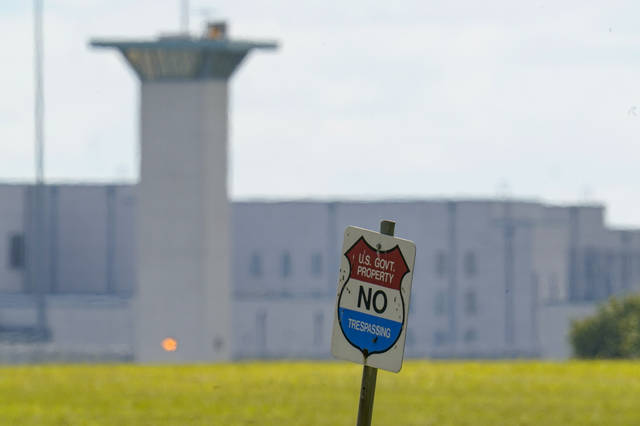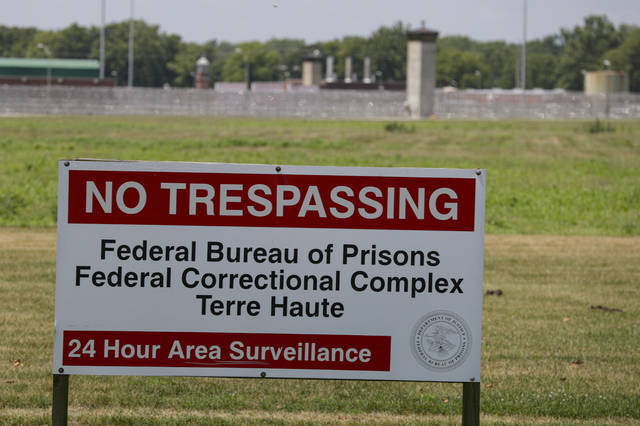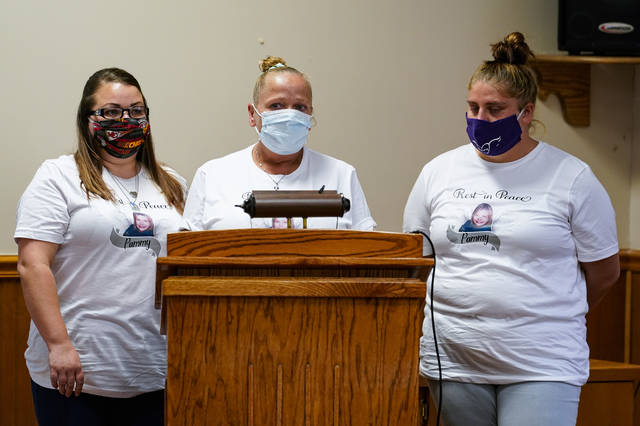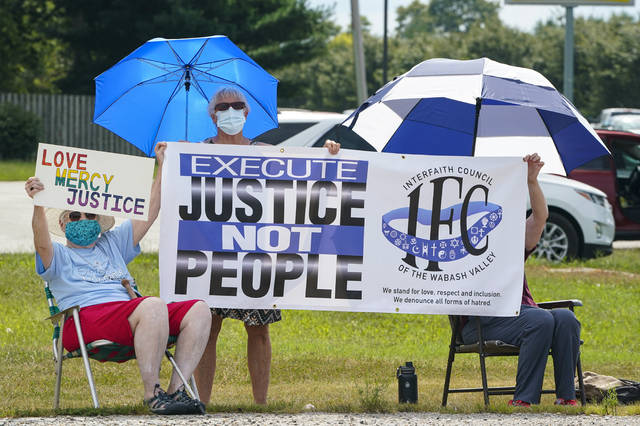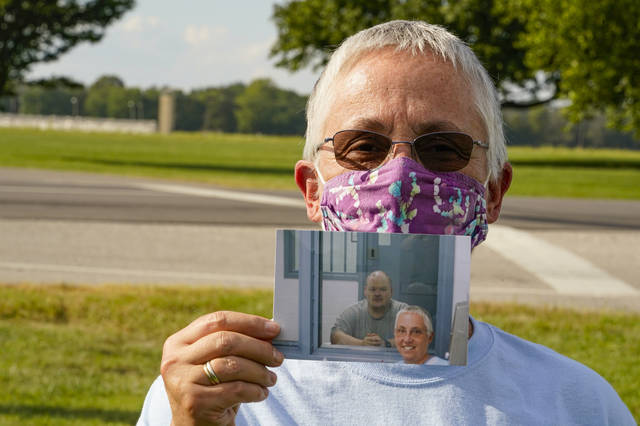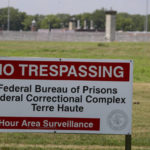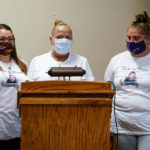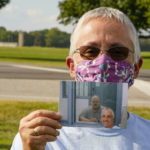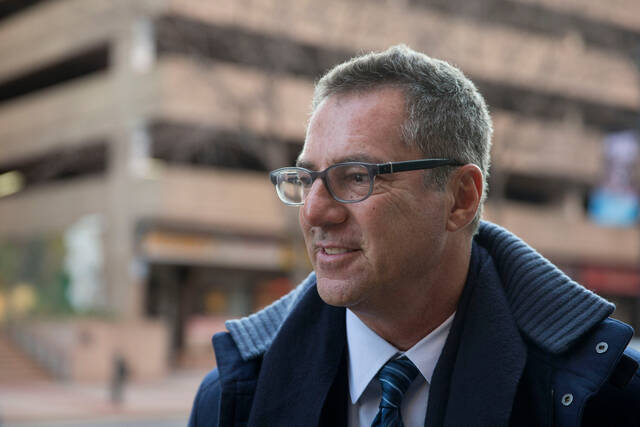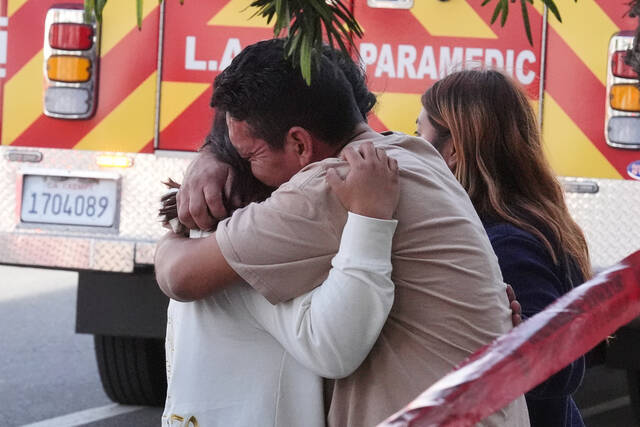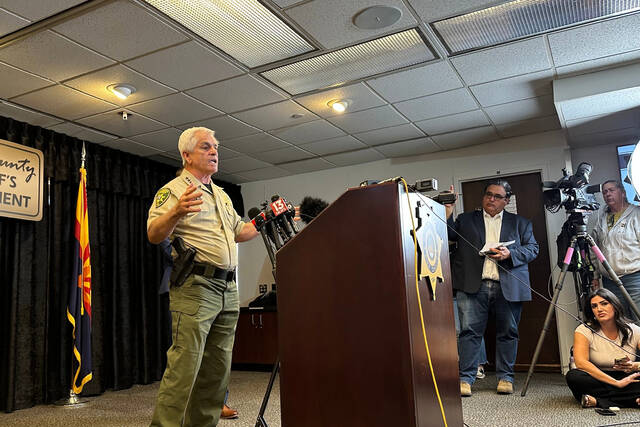TERRE HAUTE, Ind. — A Kansas girl’s killer Friday became the fifth federal inmate put to death this year, an execution that went forward only after a higher court tossed a ruling that would have required the government to get a prescription for the drug used to kill him.
Questions about whether the drug pentobarbital causes pain prior to death had been a focus of appeals for Keith Nelson, 45, the second inmate executed this week in the Trump administration’s resumption of federal executions this summer after a 17-year hiatus.
Nelson, who displayed no outward signs of pain or distress during the execution, was pronounced dead at a federal prison in Terre Haute, Indiana, at 4:32 p.m. EDT — about nine minutes after the execution began.
There was silence from Nelson when a prison official looming over him asked if he had any last words to witnesses behind the execution-chamber glass. Those observers included the mother of 10-year-old Pamela Butler. who Nelson raped and strangled with a wire 21 years ago.
Nelson didn’t utter a word, grunt or shake his head no. After the official waited for about 15 seconds, his eyes fixed on Nelson waiting in vain for any sign of an answer, he turned away and began the execution procedure.
Nelson didn’t appear to deliberately move a muscle or turn his head toward the family witness room, where Pamela’s mom wore a T-shirt emblazoned with her daughter’s picture. Angel wings jutted out from behind Pamela’s image.
But earlier, before curtains opened enabling witnesses to see inside the chamber, Nelson’s spiritual adviser, Sister Barbara Battista, was allowed to walk up and stand two feet from the gurney, lean in and hear his last words, she told The Associated Press later.
“He said he wanted me to tell his lawyers he didn’t have to wear an adult diaper during the execution. He was glad about that,” she said. “He’d also told me (days) earlier he didn’t want to be forced to do that, that it was undignified.”
Battista, who stayed in the chamber as Nelson was put to death, standing farther away, said her interpretation of his silence during the public portion was that he was afraid if he said anything, he might then say something inappropriate.
Battista, a longtime anti-death penalty activist, said she made a point of addressing Nelson by his first name in his last minutes alive.
“He wanted someone there who would call him ‘Keith’ rather than ‘Inmate Nelson,’” she said.
Nelson, whose face was obscured from witnesses behind a medical mask, remained still even as the lethal dose of pentobarbital was delivered. None of his limbs twitched or quivered, though his his chest and midsection briefly heaved and shuttered involuntarily.
The relative stillness and quiet was a contrast to the scene on on Oct. 12, 1999, as Nelson grabbed Pamela off the street and threw her into his truck. As Pamela screamed, one of her sisters who saw her abducted began screaming, too.
Pamela had been returning to her Kansas City, Kansas, home on inline skates after buying cookies. As he drove off with her, he made a rude gesture to her sister as she screamed. He later raped the fifth-grader and strangled her with a wire.
Pamela’s mom, Cherri West, said she didn’t expect Nelson to express remorse. She said, if anything, she thought he might curse at her and her family as he had done during criminal proceedings.
“I wasn’t expecting him to say anything because he never had no remorse,” she said. “I have no remorse for him.”
Nelson showed no remorse during a sentencing hearing statement and instead “blistered the district court and the victim’s family with a profanity laden tirade,” the 8th U.S. Circuit Court of Appeals noted in one ruling.
After he was declared dead and curtains were again drawn across the windows, Battista was allowed to say a prayer over, touch and anoint Nelson’s body, she said.
Nelson’s attorneys, Dale Baich and Jen Moreno, said in a statement Friday that they had come to know him as someone other than a killer, that they “saw his humanity, his compassion, and his sense of humor.”
“The execution of Keith Nelson did not make the world a safer place,” they said.
A flurry of filings by Nelson’s legal team over several weeks zeroed in on pentobarbital, which depresses the central nervous system and, in high doses, eventually stops the heart.
In one filing in early August, Nelson’s attorneys cited an unofficial autopsy on one inmate executed last month, William Purkey, saying it indicated evidence of pulmonary edema in which the lungs fill with fluid and causes a painful sensation akin to drowning.
The federal government has defended the use of pentobarbital, disputing that Purkey’s autopsy proved he suffered. They have also cited Supreme Court ruling precedent that an execution method isn’t necessarily cruel and unusual just because it causes some pain.
In her overturned ruling, U.S. District Judge Tanya Chutkan halted Nelson’s execution early Thursday, saying laws regulating drugs require the prescriptions, even for executions. Within hours, an appellate panel tossed her ruling.
Nelson’s crime was horrific by any measure.
Nelson, who didn’t previously know Butler or her family, told a co-worker a month earlier he planned to find a female to kidnap, torture, rape and kill because he expected to go back to prison anyway on other charges, prosecutors said.
After killing Butler, he dumped her body in a wooded area near a Missouri church.
With the execution Wednesday of Lezmond Mitchell — the only Native American on federal death row — the federal government under President Donald Trump registered more executions in 2020 than it had in the previous 56 years combined.
The executions of Nelson and Mitchell were carried out the same week as the Republican National Convention, where many Trump supporters sought to portray him as a law-and-order candidate.


